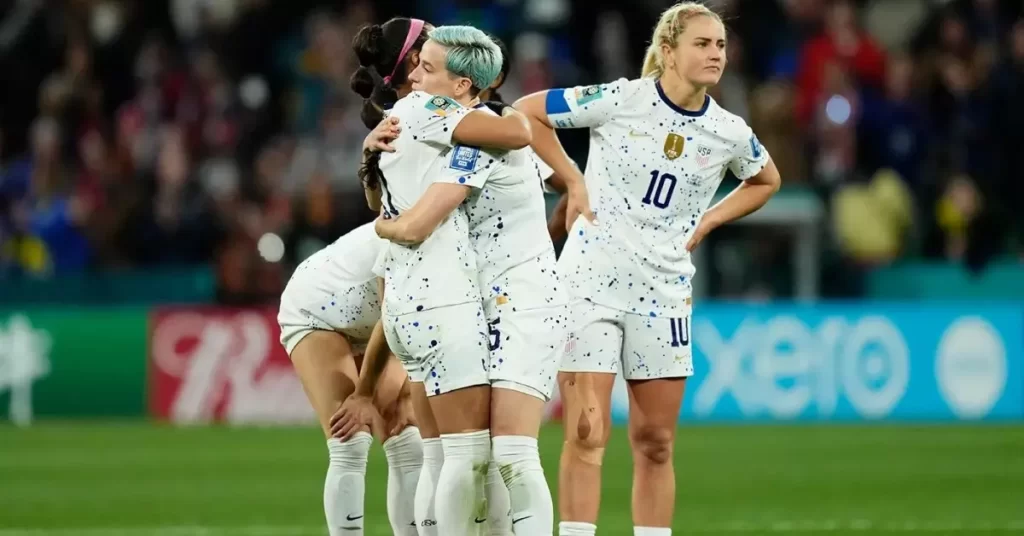USWNT Need To Address The Exposed World Cup Flaws, Before The Paris Olympics 2024
The U.S. Women’s National Team (USWNT) finds itself in an unfamiliar position, having endured a disappointing showing at the World Cup. With the Paris Olympics looming on the horizon, the team cannot afford to wallow in the aftermath of their debacle. Instead, they must embark on a transformative journey to reclaim their dominance on the international stage. The resignation of their coach, Vlatko Andonovski, serves as the first step in this process. In this comprehensive analysis, we explore the critical areas that the USWNT, and U.S. Soccer as a whole, must address in the next 11 months to ensure a successful resurgence.
Finding the Right Coach
Vlatko Andonovski’s tenure as the USWNT’s coach was marked by challenges from the outset. He inherited a two-time World Cup-winning team just nine months before the Tokyo Olympics, and the COVID-19 pandemic added another layer of complexity. However, it became evident that the team’s underwhelming performance in Tokyo and subsequent struggles were not solely due to external factors. Andonovski’s tactical choices and inability to adapt to the players’ strengths stifled creativity and joy within the squad. The new coach must instill boldness and confidence while leveraging the team’s deep talent pool.
Sarina Wiegman, fresh off her second consecutive World Cup final appearance and two European championships, is an obvious candidate. The English Football Association’s reluctance to part with her should not deter U.S. Soccer from making a compelling effort to secure her services.
Evaluating the Talent Pool
The USWNT’s remarkable success over the past 11 years, including two World Cup titles and an Olympic gold medal, has led to evaluating players based on their past achievements rather than their current potential. To ensure a seamless transition to the next generation of players, difficult decisions will need to be made regarding some of the veterans.
Megan Rapinoe and Julie Ertz have signaled their retirements, and while Alyssa Naeher and Kelley O’Hara remain world-class, their age must be considered for the long-term strategy. Even the iconic Alex Morgan, at 38 for the next World Cup, may not secure a starting spot. It is essential not to undervalue the present at the expense of the future. Overlooking talented young players like Alyssa Thompson and Ashley Sanchez during the World Cup was a mistake. The upcoming cycle should prioritize providing meaningful minutes to emerging talents such as Jaedyn Shaw, Olivia Moultrie, and Chloe Ricketts, who represent the future of the USWNT.
Harnessing the Power of Failure
The USWNT’s early exit from the World Cup was a jolt to the system. While external factors were not responsible for the team’s performance, the failure can serve as a powerful motivator for the players, especially the younger generation. The emotional toll of the defeat must be channeled into a hunger for redemption.
Players like Sophia Smith, Trinity Rodman, and Lindsey Horan experienced the agony of missed opportunities, and their commitment to returning stronger should be harnessed. Learning from the lessons of failure can be more valuable than any previous experience, and it is essential for the team to emerge from this setback with renewed determination.
Finally, the clock is ticking relentlessly as the USWNT prepares for the Paris Olympics. Reshaping the team’s identity, finding the right coach, making strategic player evaluations, and using failure as a catalyst for growth are all critical components of their journey to redemption. The path ahead will be challenging, but the USWNT possesses the depth of talent and resilience to overcome adversity and return to their status as world champions. The world will be watching, and the challenge is clear: rise from the ashes and reclaim the pinnacle of women’s soccer.



